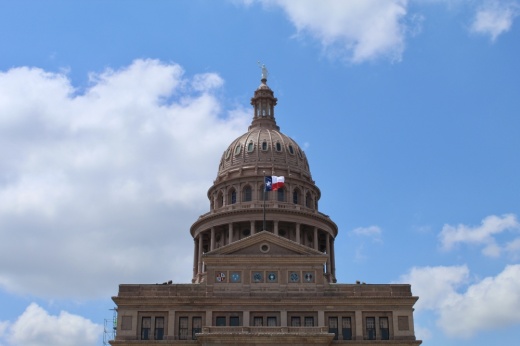House Bill 5, by Rep. Todd Hunter, R-Corpus Christi, would replace Chapter 313, a popular corporate tax break program that expired in December. Deemed the Texas Economic Development Act, Hunter’s proposal is aimed at attracting major businesses to the state by limiting their property taxes over a 10-year period.
The bill would provide incentives for certain projects, including national and state security, supply chain infrastructure, manufacturing, power grid reliability, and other initiatives that require “an investment in a school district in Texas of more than $1 billion.”
Notably, renewable energy projects likely would not qualify for the tax breaks.
“Between us, I have no problems with the renewable [energy] industry, ... but in this bill, they are not [included],” Hunter told his fellow lawmakers May 4 on the House floor.
He explained that excluding renewable energy companies helped get more stakeholders on board with the bill.
In March, Gov. Greg Abbott said he does not support incentives for renewable energy companies and is focused on ensuring that dispatchable power, such as natural gas and coal, is available “to provide reliable electricity to everybody in the state.”
The federal government offers multiple tax credit programs for renewable energy production, which Abbott and Hunter have cited as a reason for Texas to exclude these companies from the legislation.
During debate on the House floor, some lawmakers argued that renewable companies may qualify for state subsidies. The bill states that projects that provide stored energy to Texas’ power grid through batteries are eligible for tax breaks, “regardless of power source.”
Because renewable energy sources, such as wind and solar, depend on the weather, they are not reliable enough to consistently power the grid. However, Rep. John Smithee, R-Amarillo, said he expects improvements will be made to increase their reliability within a few years.
Smithee also proposed an amendment to include renewable projects in the tax break program if they are “dispatchable, sustainable and dependable.” After 15 minutes of discussion, he withdrew the amendment.
“We’re going to need power from everywhere we can get it on our grid,” Smithee said.
This summer, demand for electricity is expected to exceed the amount of available dispatchable power, said Pablo Vegas, CEO of the Electric Reliability Council of Texas, at a May 3 news conference. This means Texas will need to rely on renewable energy sources to keep the lights on.
During debate, Hunter said his bill would increase transparency into the corporate tax break program and provide more information about how taxpayer funds are being used. HB 5 requires annual state audits of at least three tax break agreements. Businesses and school districts would also have to submit biennial compliance reports covering the components of their agreements.
Companies hoping to participate in the program would have to include in their application information about the planned project and the estimated economic benefit to the area in which the project will be located. The state comptroller’s office would then review the submitted information and recommend whether the corresponding school district should approve or deny the application. If the comptroller recommends an application be approved, the school district makes the final decision.
HB 5 was approved by the House with a 120-24 vote. It now heads to the Senate.





